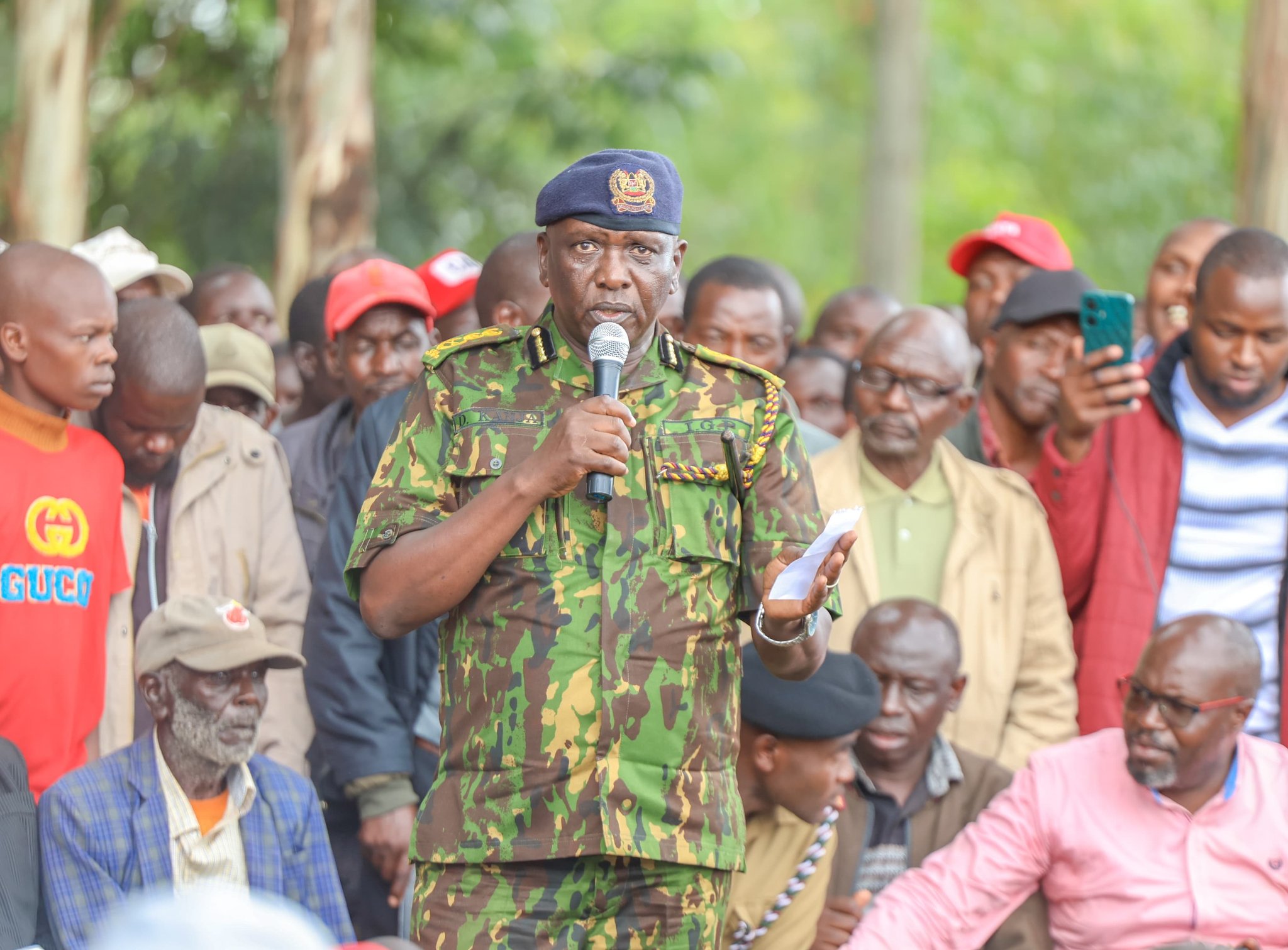
IG Kanja orders transfer of DCIO and GSU in wake of Angata Barikkoi killings » Capital News
NAIROBI, Kenya, Apr 30 — Inspector General of Police Douglas Kanja has ordered the immediate transfer of the Divisional Criminal Investigations Officer (DCIO) and a General Service Unit (GSU) contingent in Narok following Monday’s violent confrontation in Angata Barikkoi that left five civilians dead and several officers injured.
IG issued the directive during a high-profile visit to the volatile region, where he assessed the aftermath of the failed police operation.
The confrontation occurred on April 28, when residents resisted a court-sanctioned operation, triggering a deadly clash with law enforcement personnel.
Addressing a packed public baraza alongside senior police officials and local leaders, IG Kanja expressed regret over the tragedy and stressed better coordination and community engagement could have averted the confrontation.
“The loss of life is deeply regrettable and should never have occurred,” Kanja said.
“I have referred the matter to the Independent Policing Oversight Authority (IPOA) for a thorough investigation. No one is above the law.”
In a bid to restore public trust and calm tensions, Kanja directed the posting of a new team of security officers to oversee security in the area and promised wider policing reforms tailored to the region’s needs.
“DCI you must recall the DCIO here and post a new one that will work with the people,” he directed.
Lasting peace
He urged residents to uphold the rule of law and work with police to ensure lasting peace.
Accompanying the IG were Deputy IG of the Kenya Police Service Eliud Lagat, DCI Director Mohamed Amin, GSU Commandant Ranson Lolmodooni, and other top-ranking NPS officials.
Political leaders, including Senate Majority Leader Aaron Cheruiyot, Belgut MP Nelson Koech, and Emurua Dikirr MP Jonah Ngeno, condemned the excessive use of force and demanded swift action against officers found culpable.
They echoed calls for accountability and emphasized the need for lawful engagement with communities.
As investigations continue, the community remains on edge, with calls growing for justice and structural changes in how security operations are conducted in rural areas.